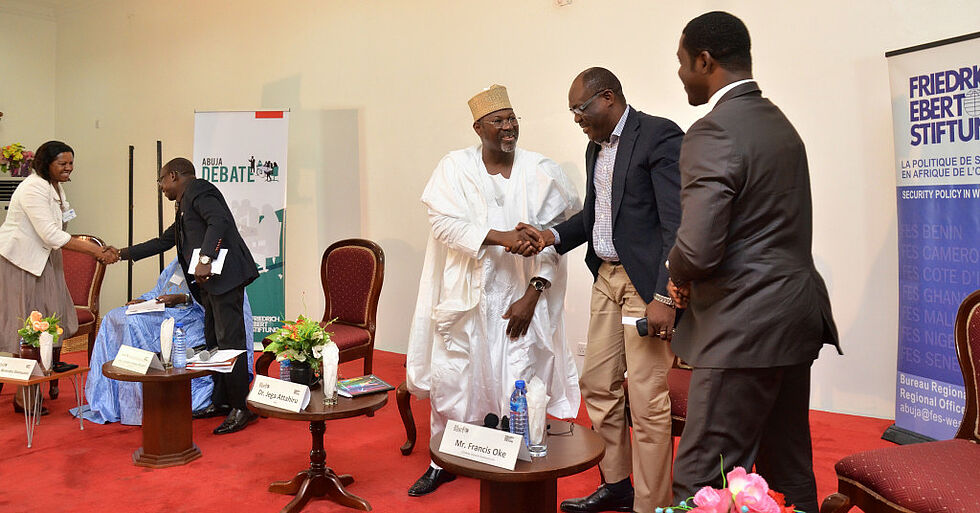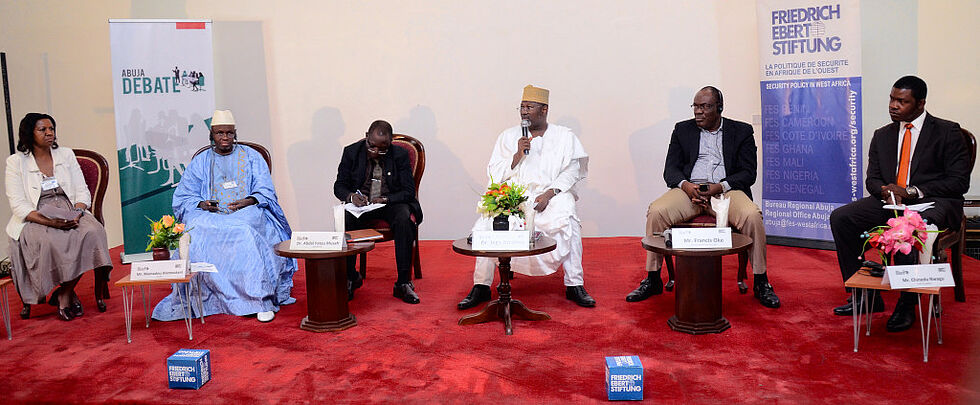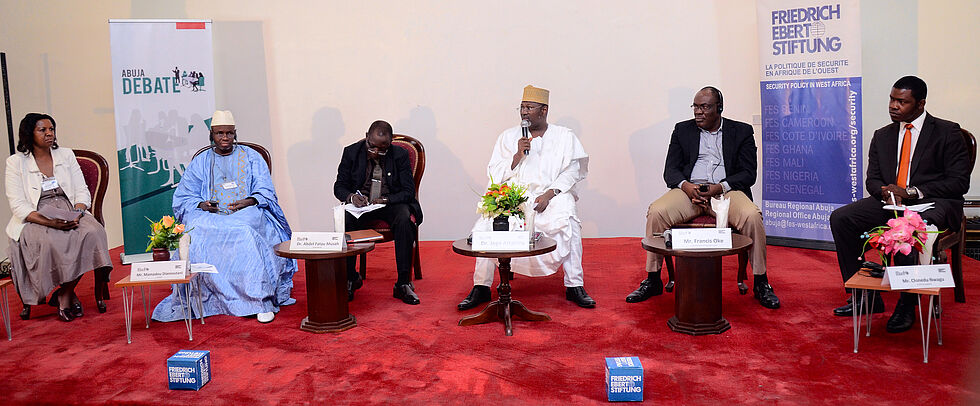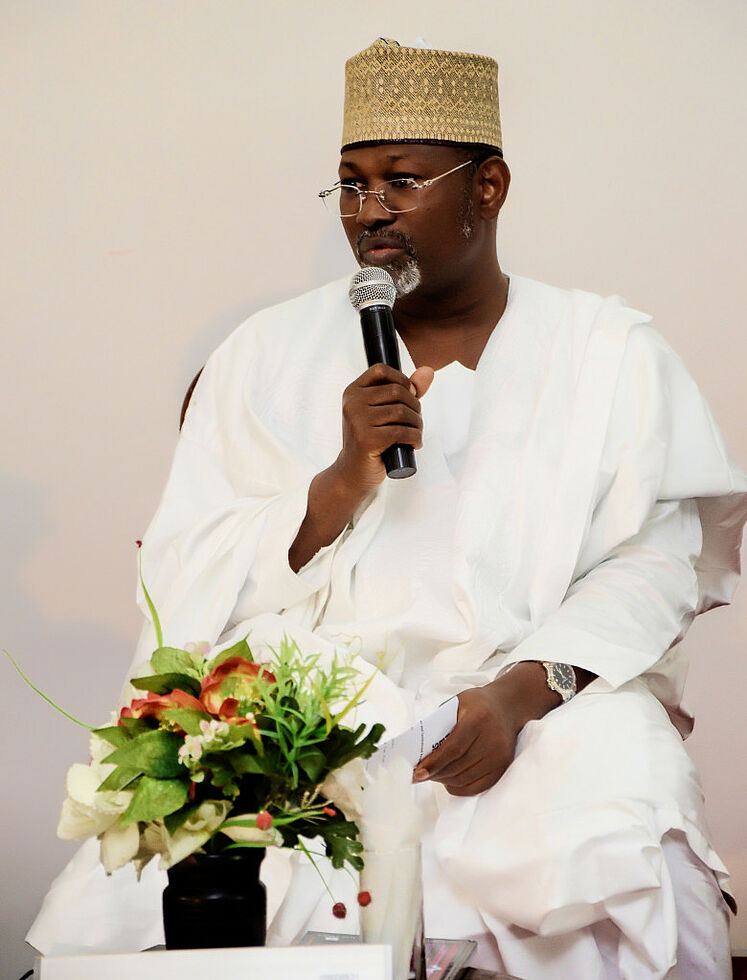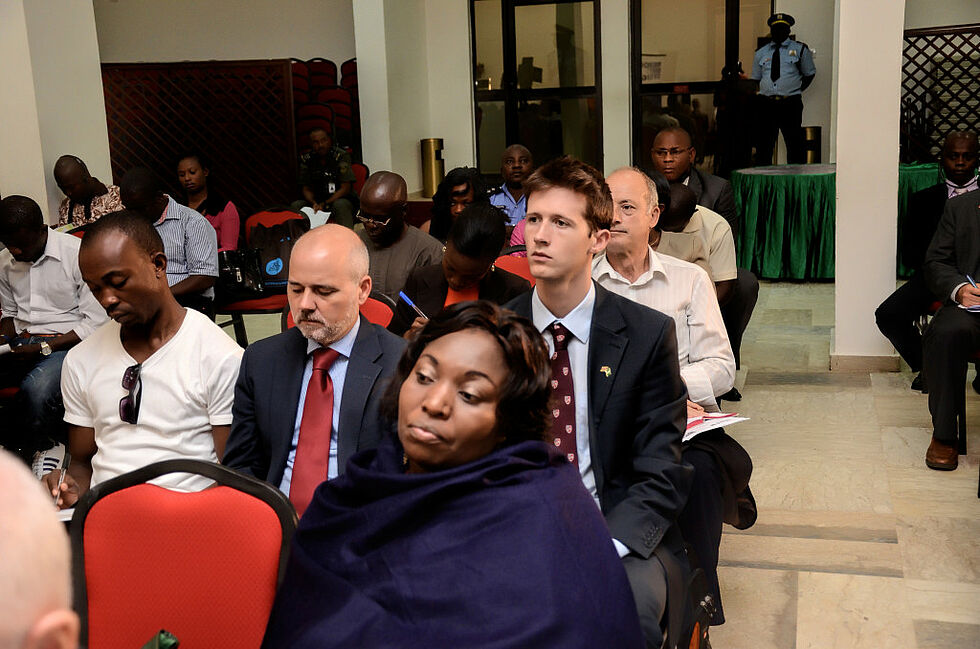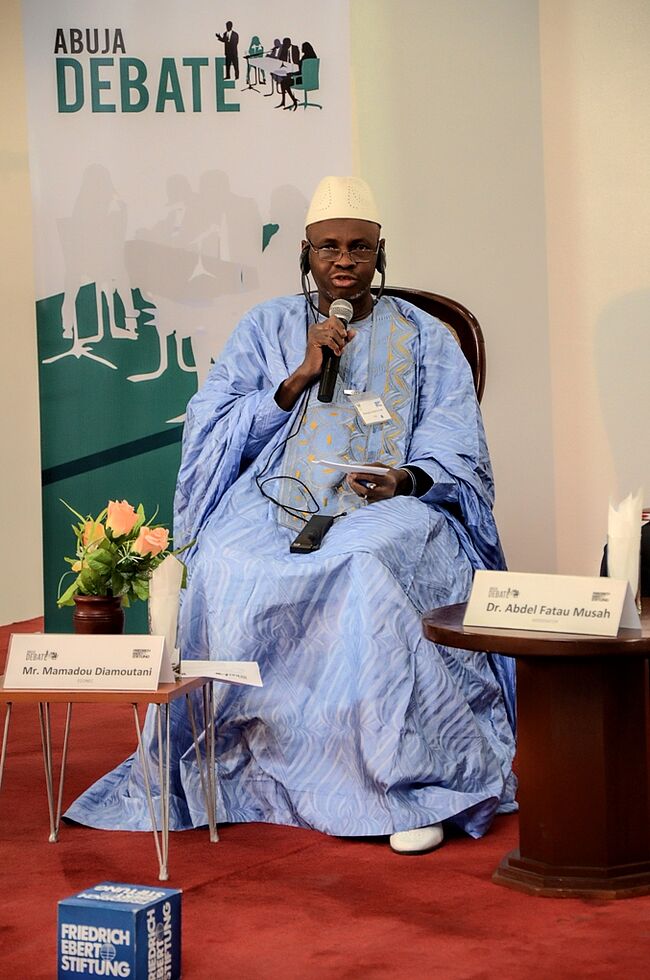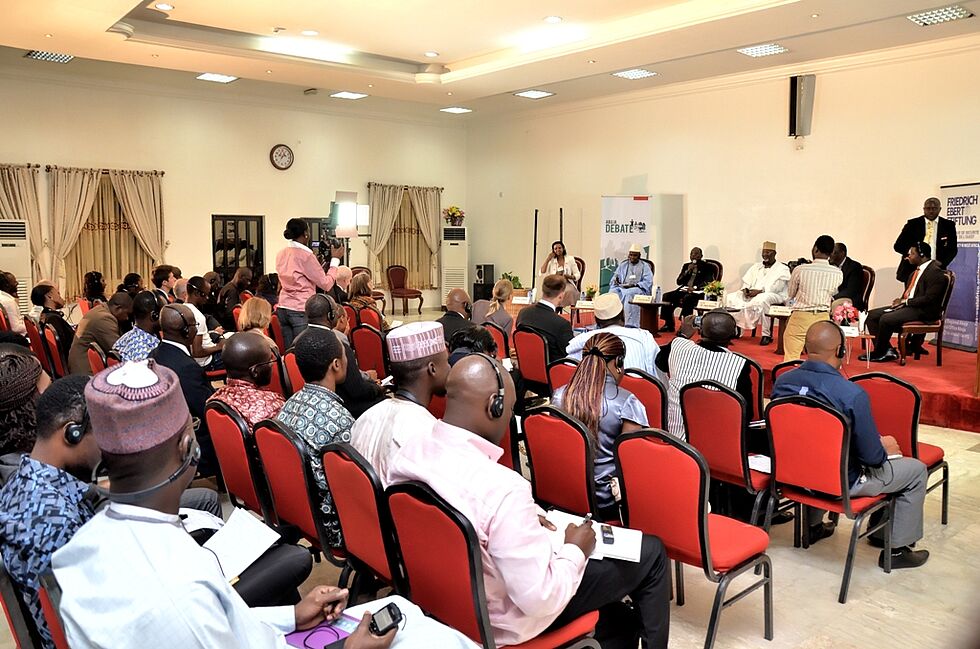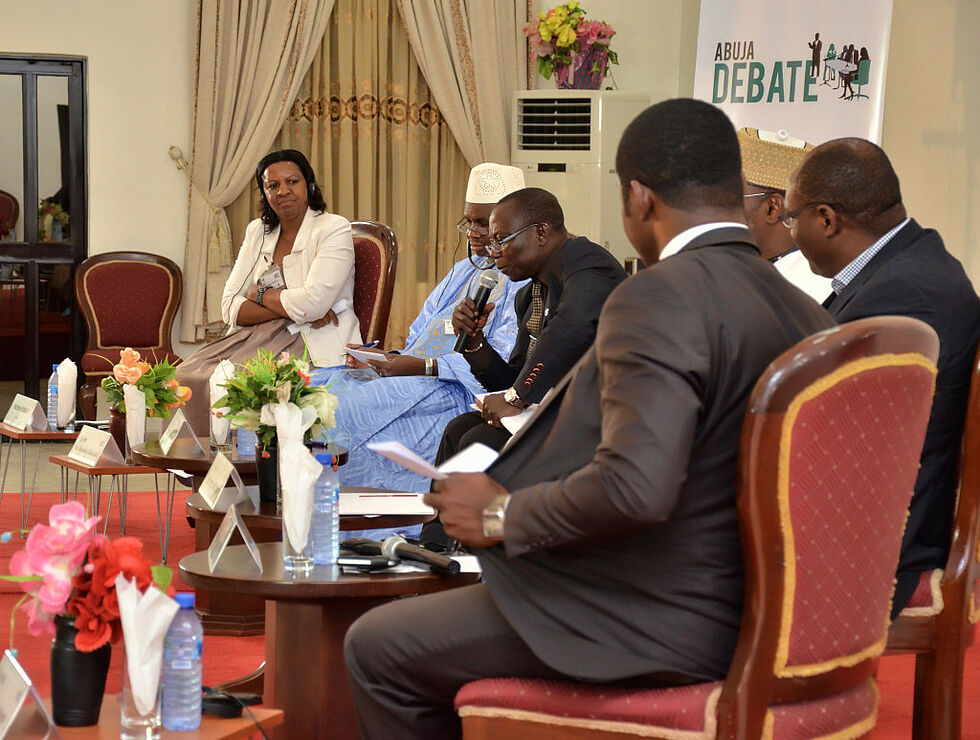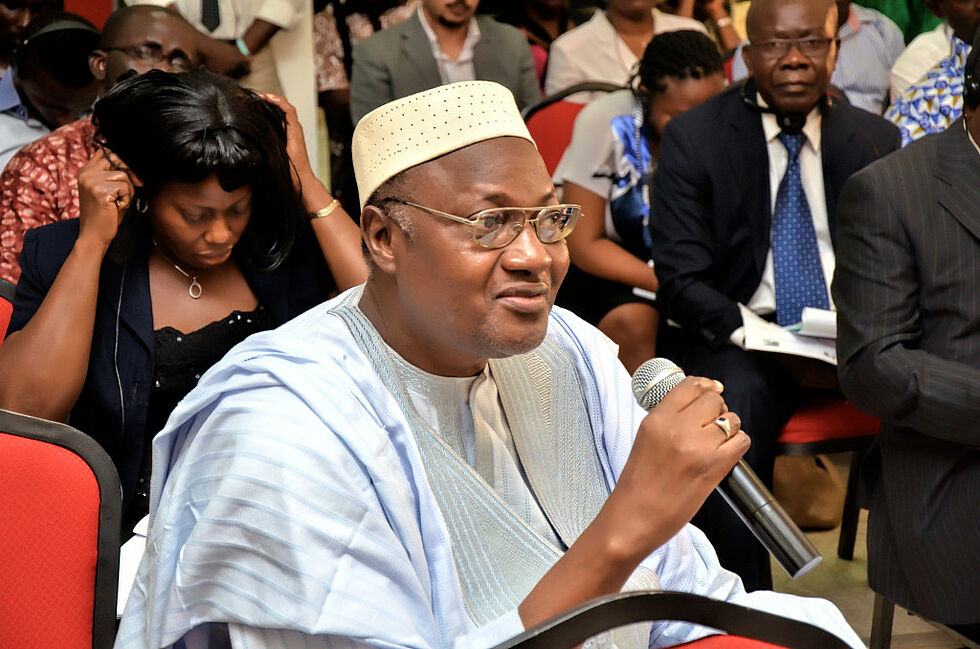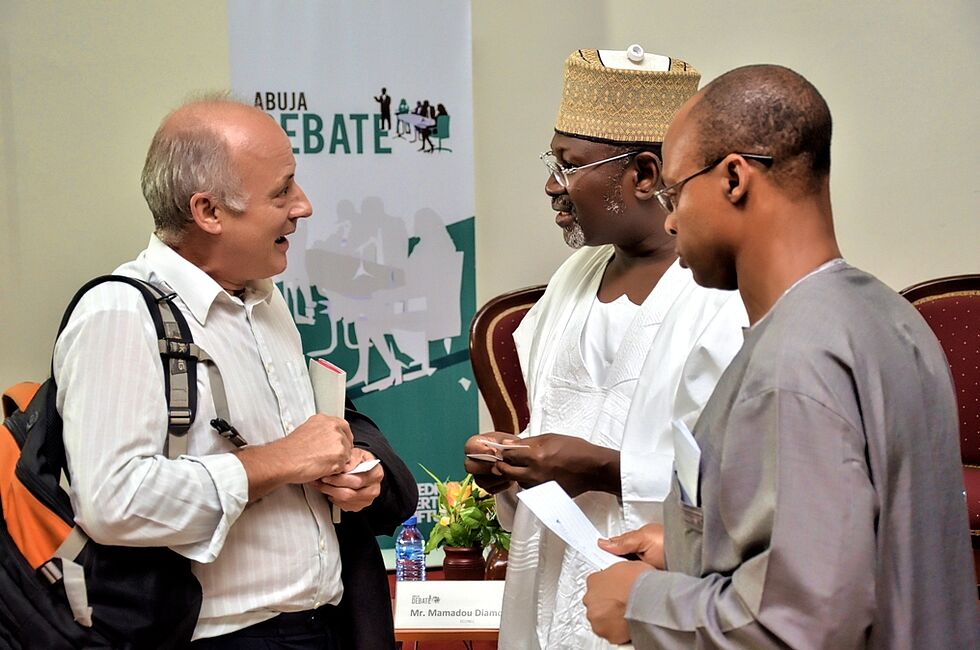Ethics and Elections: Challenges and Institutional Responses
The debate was moderated by Dr. Abdel Fatau Musah, Director, Political Affairs Directorate, ECOWAS, who created an open and interactive atmosphere for the panellists and audience. The following were the panellists and comments: Prof. Attahiru Jega , Chairman Independent National Electoral Commission (INEC) Nigeria, stated that the signing of the code of conduct by all political parties has helped to resolve disputes among political parties in Nigeria; Mr. Mamadou Diamoutani, Chairman Independent National Electoral Commission (CENI) Mali, stressed the need for all relevant stakeholder be involved in the electoral process to reduce the problem of incumbency control; Mr. Chinedu Nwagu, Project Manager, CLEEN Foundation, stated transparency in the selection of the Chair and personnel of the electoral bodies was key to having credible elections; Mr. Francis Oke, ECOWAS Electoral Assistance Unit, noted the need to establish a protocol in addressing the electoral structure in member States and Mrs Muthoni Wangai, Independent Electoral and Boundaries Commission (IEBC) Kenya, stressed the independence of the selection of Commissioners from the presidency, citing the successful case of Kenya.
The ensuing deliberations centered on the question of credibility, for which some key determinants were identified. These included the legal framework ECOWAS has adopted in the region, the seriousness of efforts to identify irregularities and/or culprits of electoral fraud/manipulation, institutional responses and strategies put in place by Member States, the role of the international community in resolving disputes and finally, the importance of independent election monitoring during elections.
Each panellist was asked to identify “culprits” of electoral fraud from their experience. Cited were the candidates, personnel in the electoral bodies, the holders of poltical office, the judiciary as well as interested individuals, i.e. “business men” seeking contracts or favours from the government.
Structural hindrances to credibility were the reluctance of security agencies to arrest and prosecute electoral offenders and the rent-seeking nature of the political economy where politics had become the one striving sector.
Recommendations centered on establishing good legal frameworks for Election Management Bodies (EMBs); the need to define and harmonise electoral laws, observings lessons learned from cases such as the Kenya 2007 election (involvement of all stakeholders including women, independency of the Commission); transparency in election of the Chair and personnel of the Commission; Inter-party dialogue advisory board which was learnt from the Ghana experience to resolve disputes among political parties; the role of the EMBs in addressing the issue of ‘monetised elections’; reduction of incentives for politicians and political office holders to mingle, the use of biometrics registration during elections. Further emphasis was put on the need to build capacity for electoral bodies and the need to invest more in the judiciary arm.
Friedrich-Ebert-Stiftung
Peace and Security Centre of Competence Sub-Saharan Africa
Point E, Rue de Fatick x Boulevard de l'Est,
Residence Bity Lokho, 6th floor
B.P. 15 416
Dakar - Fann


